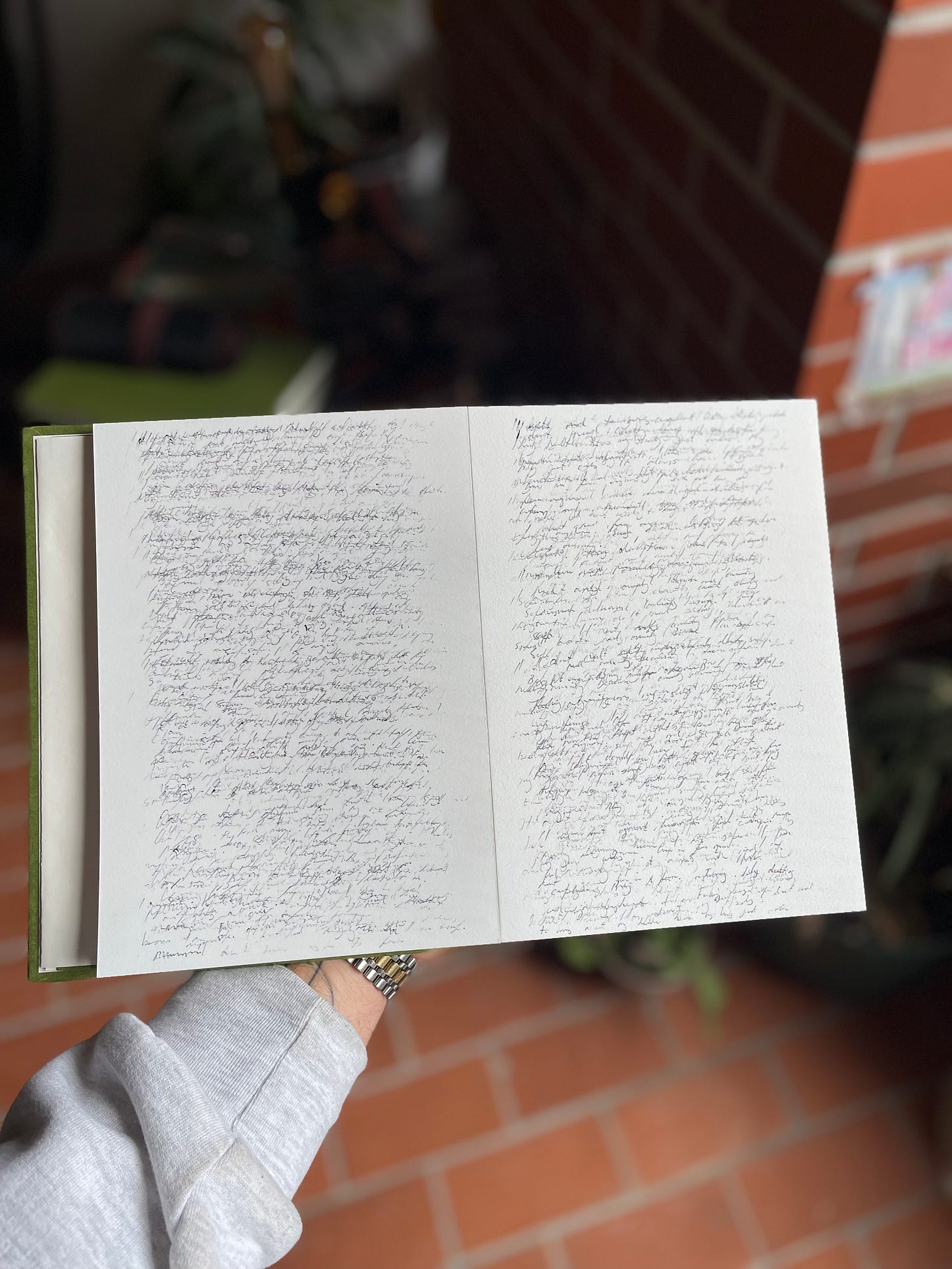Late one night earlier this week, I sat on the couch with my eyes closed. I was engaged in what’s called expressive writing. This is something I do often.
The next day, I showed my partner. She said, “You should frame this!”
I’m not so sure I will, but I am happy that this expression of the process of me, in my attempt to ‘process’ the process of me—something I’m calling ‘Between Lines’ due to the rather obvious lack of usual spacing, along with the deeper meaning we typically associate with ‘reading between the lines’—spoke to her so powerfully.
It brings me straight back to my framing of what art is, something I recognise very much as a ‘living process’ itself, and therefore do not ‘hold onto’ definitionally.
Why art?
Flying up to the Gold Coast early this morning, ahead of speaking at Ethical Futures for People and Planet, I was writing. The following, about two thirds of the way in, came out…
But the deeper ‘meaning’ I derive from this process and the resulting output is what I’d like to discuss a little today.
Reading between the lines…
What lines do I refer to?
And what space, possibility, knowing and insight might exist ‘in between’?
For today, the lines I refer to are the common threads of civilisation. I mean certain stories, certain patterns, certain values and beliefs, certain practices, certain incentives, certain instruments, certain technologies etc. Let’s just broadly refer to this as the obvious / overt / explicit ‘architecture of civilisation’ today (at some level, what I refer to could actually be thought of as the rather problematic story of ‘progress’ that lacks necessary nuance and criticality).
The ‘in between’ I refer to is all that goes unspoken, all that goes unnoticed, and all that cannot actually be noticed because it’s too complex or opaque or beyond our capacity to ‘make sense of’ as finite beings.
Now, we can’t do much about whatever lies beyond our finitude, but we can do plenty to meaningfully surface that which is unspoken and largely unnoticed.
When we do this—make explicit the implicit—we often enhance our capacity for action* (our agency).
*Please note that this is not being used to suggest we become further obsessed with the propositional dimension of knowledge, at the expense of other ways of knowing. This is being proposed as one of many things that matters because it helps more of us deepen our understanding of the historicity of civilisation, such that we are better informed in certain ways, and can make better shared decisions about how we co-organise going forward (which is not to say that simply furthering our ‘understanding’ will produce better co-organisation. It won’t, because it’s not the ‘necessary and sufficient condition’. But it is one of the necessary conditions. Therefore it matters).
So, with that, I’d like to share a recent short video from The Great Simplification. Many of you are likely familiar with this work. So I’m hoping this acts as something like a prompt to share this a little more broadly.
For those you share this with, it may be the first time they’ve ever interfaced with such content. It might help give them a slightly deeper sense of where we’ve come from, where we’re at and where we might be going.
Through this, we can hopefully start spending a little more time ‘between the lines’ together, exploring what can, and most importantly, should be done going forward.
With love as always.






I have done a bit of this sort of thing in the past, Nate, in the middle of the night, in the dark. Some interesting stuff comes out. I think it is when you can shut out some of the artificial world we have created around us and the real universe shines in - in between, as you put it. The physical substance of our bodies is aware of where the rest of the universe is, relative to itself, and responds accordingly - how else could it know which way to fall towards the earth when we trip over. This is the live, universal way of knowing that you are allowing to guide your hand, instead of the knowledge which has been abstracted from reality by your senses and impressed, then stored, in your head - what science calls knowledge.